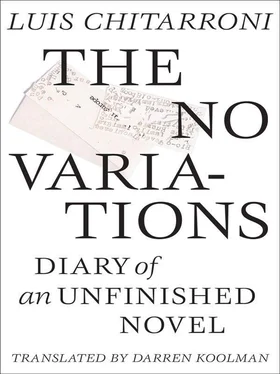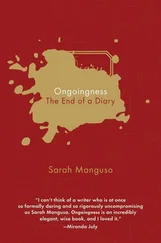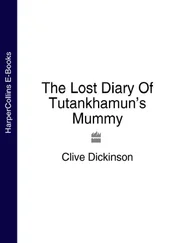Good old Julian Cope!
The land where everything is possible (especially if it isn’t true), because there’s no such thing as criticism there. THD’s (Toribio Hesker Dubbio’s) niggling praise of Quaglia’s novel ( Existential Resignation ?) is an obvious example: like one of those old Unitarian matrons, a grande dame who, having read her first novel, commends the author’s diligence and intelligence for having brought its historical setting to life … and not merely a historical setting but a geographical one to boot — although lacking an appendix of fold-out maps, sadly. The kind of mordant observation the resentful Eiralis would make.
Beneath the sign of the capital [S]: sibilant, sinuous — more than deserving of those protective parentheses: brackets guarding against all the excess, malice, and falsehood in the world.
Luini isn’t tall. Neither is he short. In fact, no one quite knows his height [see Kenner on Pound]. He’s cynical, he’s droll. And he lives in an age when this conjunction of qualities boils down to the single abominable adjective: intriguing. He edits, corrects — usually what’s already been corrected. He practices the art of supererogatory copyediting.
Luini, a disciple of Leonardo. Opacity.
Dos is homosexual ( smart, camp, bitchy ). He’s the first to extol the genius and glamor of the women in the group, their absent muses: Elena, Eloísa, Irena, Inés.

The painting is from the early seventies, based on the original photograph showing them all seated together at a table in Estrambote, a restaurant belonging to Dos (double, Charlie). Nicasio’s prominent place in the picture is intended to highlight [“underscore,” perhaps?] the position of Inés (Eloísa), who’s attempting to imitate Rimbaud’s pose in the F-L original, despite there being no coin in the frame. Nicasio sits with his barracan jacket slightly open, his hand reaching — in plenipotentiary gesture — for his wallet (“ample as a library,” according to Dos) so he can pay the bill. To his left, Elena — slouched forward like a haystack — has a puzzled expression, her hand seeming to tug at a piece of thread, as if to unravel the solution to some cryptic name game; and seated next to her, the Dostoyevsky of the group, Lalo (Sabatani), seems to be searching for a way out of the shot. Above left, in the top hat, Luini stands next to the leisurely Dos, who has a “silk scarf draped in modest abandon” around his neck, standing in stark contrast to the shy and bespectacled Prosan. Ah, and I almost forgot about the cadaverous figure of Belisario Tregua (or Basilio Ugarte?), seated bottom left. The photo was taken by Remo Scacchi, but the barely conspicuous watercolor hanging on the wall (deep down he liked to imagine that it was his own portrait of Elena hanging there, sketched in sanguine chalk) was actually painted by his brother. In the early stages of his painting, he took care to capture her likeness accurately, but in the end he succumbed, as he always did, to his annoying proclivity for disfiguring his work with brash and gaudy brushstrokes. Reckless Expressionism, I call it.
Eiralis describing either the first group meeting or the first group photo.
People like B[] P[] who, in his strict observance of Q’s exercises in obedience, has become impervious to the teachings of Borges.
Another one smuggling in Glenn Gould under his shirt.
Who, because of his droning inanity, and making use of one of his own awkward metaphorical niceties, was given the nickname: “Luminous puree.”
Lunar puree. Woolen puree.
Add after A.P. on the women who
Intersection of adulteries / collaborative writing
Some bit of idiocy, as in Guattari?
Analysis of the variations provided by only two options (remember, two wasn’t even a number before Socrates [see the pre-Socratics, Barnes, Watts]): two bloodlines: two illnesses:
Aldecoa Inauda / Hilarión Curtis
Kleptolalia / Cryptodermia
And vice-versa: kleptodermia — cryptolalia
Oliverio’s story about the Venus who repeatedly swaps her true form for human “furs” … Nicasio’s instance of cryptolalia: the mute little brothers in his short story, “The Imitation of an Ounce.”
Collaborative writing. Comprised of two varieties:
Analysis of all possible combinations
Plagiarism
Laurence Sterne / Lautréamont
Stewart Home / Bajarlía
Basilio Tregua / Belisario Ugarte
Incoherency / Contradiction. Postpone dealing with this for the time being.
Title of the first story: “Early”
Or else rename it “Too Late”? It’s quite an old story (from back in ’86, or earlier) about the wanton world of plagiarism, a two-dimensional world existing in a two-dimensional space, populated by ferociously competitive inhabitants with two-dimensional outlooks. It appeared in an anthology published by Monte Ávila of Venezuela, edited by Héctor Libertella.
Unease: there are always extenuating circumstances.
Strategic reassurance and remorse. Would like to include the sestinas on departure and return (formalist nonsense!) — and the short poems in English from The B(achelor) in B(edlam) that Charlie was so fond of.
I wrote “Early” for a meeting of The Cause —which was either a writer’s group none of us founded or a magazine none of us launched, in order to fulfill the mandate to start such organizations that was issued by (cacophony of resentment) the magazine El periodista de Buenos Aires (ah, that brings me back!). And before that?
I think I was the only one who did his homework that time. The meeting was held in Charlie’s flat on Independence Street (the one from Ignatieff’s The Lesser Evil ). Charlie, Alan, Chefec, Guebel, Bizzio, and myself. I remember them all going over the pages I typed on my mechanical Hermes while I waited, having nothing better to do. The Pole was the first to finish reading, or the only one who didn’t give up. “I like it,” he said, “I think it’s very sentimental.”
The capriciousness of memory. I can’t imagine even Sergio or Danny being able to follow all this.
Speaking of Sergio, in Trichinopoli (a novel I was writing in jest while others were working on theirs in deadly earnest), the basic unit of currency was the “chefec” (derived, supposedly, from the phrase check feckless coin ). Sergio B[izzio], who was always prissy and pedantic, told me he could never read a book with such a title. It’s the name of a city in southern India, I puffed affectedly (being even more prissy and pedantic than he). There’s also a brand of breadsticks called Grissinopoli .
Now let life obscure the difference between life and art .
—J.C.
Another reminder re: “Early”: The Répide Stupía book the narrator plagiarizes is a collection of poems, not short stories. Same title, however: Accents .
The beginning [#5]
I won a literary competition with a story actually written by Francisco Répide Stupía. Every page of the story is basically a word-pimp’s larding-on of obscurities and contradictions, the better to obfuscate the plagiarism — and written in a light tone to sugar over the gravity of the crime.
Although I’m not really a writer, I’ve had many things published in my name. I knew others who did the same: Marina Ipousteguy, for example, who spent the summer writing, living with a man who wrote. As soon as she stopped living with the man who wrote, she published a book of poems; the man who wrote is still writing, but now Marina lives with an architect who reads. The whys and wherefores of all this escape me, as they would anyone. But I’m not writing this to resolve them.
Читать дальше













